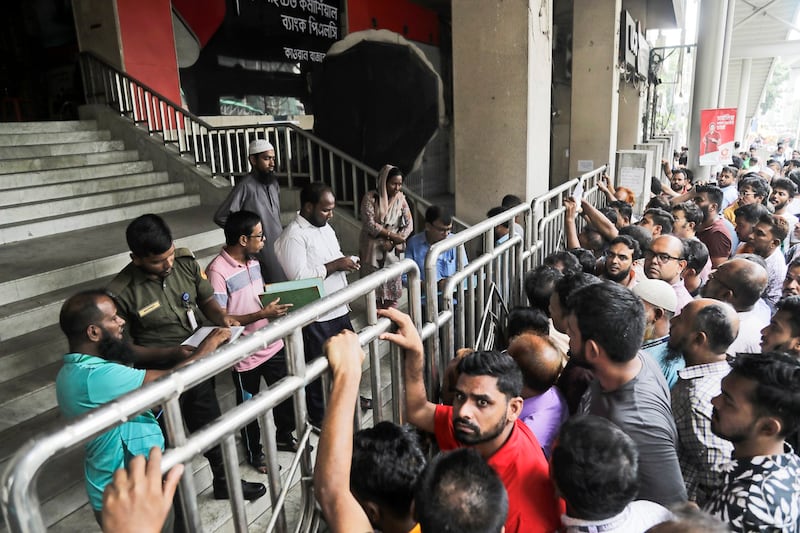When the Bangladesh government announced it was shutting down the internet on July 18 in response to student-led protests in many parts of the country, refugees living in Cox’s Bazar braced themselves for yet another catastrophe.
Having fled ethnic violence in neighboring Myanmar, nearly 1 million stateless Rohingya refugees live in tightly packed border camps. The internet represents a rare lifeline in a place where freedom of movement is curtailed by the government and spiraling gang violence has created an atmosphere of terror. The refugees rely on mobile services to work and procure food, in addition to communicating with friends and family beyond the camp.
“It’s affected so many corners,” said Mohammad Salim Khan, a refugee who lives in Bangladesh’s Kutupalong camp and works as a photographer and aid worker. In interviews conducted with Radio Free Asia in the days after the internet was restored, Khan and others said the shutdown had impinged on almost every aspect of their daily lives.

Student protests over government job quotas turned deadly last month, when clashes broke out between protesters and counterprotesters, as well as security forces. The government responded with a highly criticized shutdown of mobile networks and fixed-line internet, affecting nearly everyone in the country. While mobile internet officially went online Sunday, service remains extremely poor in many areas and some social media apps remain blocked.
While Khan is luckier than many in the camps as he is able to support himself with outside work, the shutdown meant lost assignments. Worse, he struggled to feed himself when the online systems that the World Food Programme relies on to deliver rations shut down.
“We haven’t got food from WFP and many other humanitarian support services were off,” he said. “It’s really hampered our daily lives.”
RELATED STORIES Here’s what happened when Bangladesh shut internet during deadly unrest
[ Rohingya at risk of being forgotten, activists sayOpens in new window ]
[ Bangladesh keeps social media sites, apps offline in wake of deadly clashesOpens in new window ]
Nearly 920,000 Rohingya refugees receive food support from WFP, which provides an $11 food ration a month. A spokesperson for the agency could not be reached for comment, but a field staffer who asked to remain anonymous because they are not authorized to speak to the media said the internet shutdown greatly hampered their ability to issue electronic vouchers, which allow refugees to purchase food.
“We usually use e-voucher cards, but this time we have to provide the service manually through handwriting and collect the data manually,” the staffer said. “Because of the countrywide [internet] shutdown we faced problems … providing service.”
Like many in Bangladesh, refugees rely on mobile apps to send and receive money. Those inside the camps often depend on support from family members located elsewhere.
A 55-year-old woman who asked not to be named for security reasons said the shutdown meant she has been unable to communicate with her son, who lives and works in Malaysia.
“I’m sick and I need medicine … but my son can’t communicate with us and can’t send the money,” she said. “I have tried to call and call but can’t get through.”

John Quinley, director at Fortify Rights, a human rights advocacy group, said the shutdowns had made it particularly difficult for refugees to contact humanitarian groups inside the camp, where violence is widespread. He urged the government to restore full service.
“As in other parts of the country the Bangladesh authorities have cut internet services to block information on human rights abuses from getting out. In the camps, Rohingya are still experiencing restrictions on movement, extortion and detention,” he said. “The brutal crackdown on freedom of expression by the Bangladesh authorities is creating ripple effects.”
Additional reporting by Abby Seiff. Edited by Abby Seiff and Kate Beddall.
